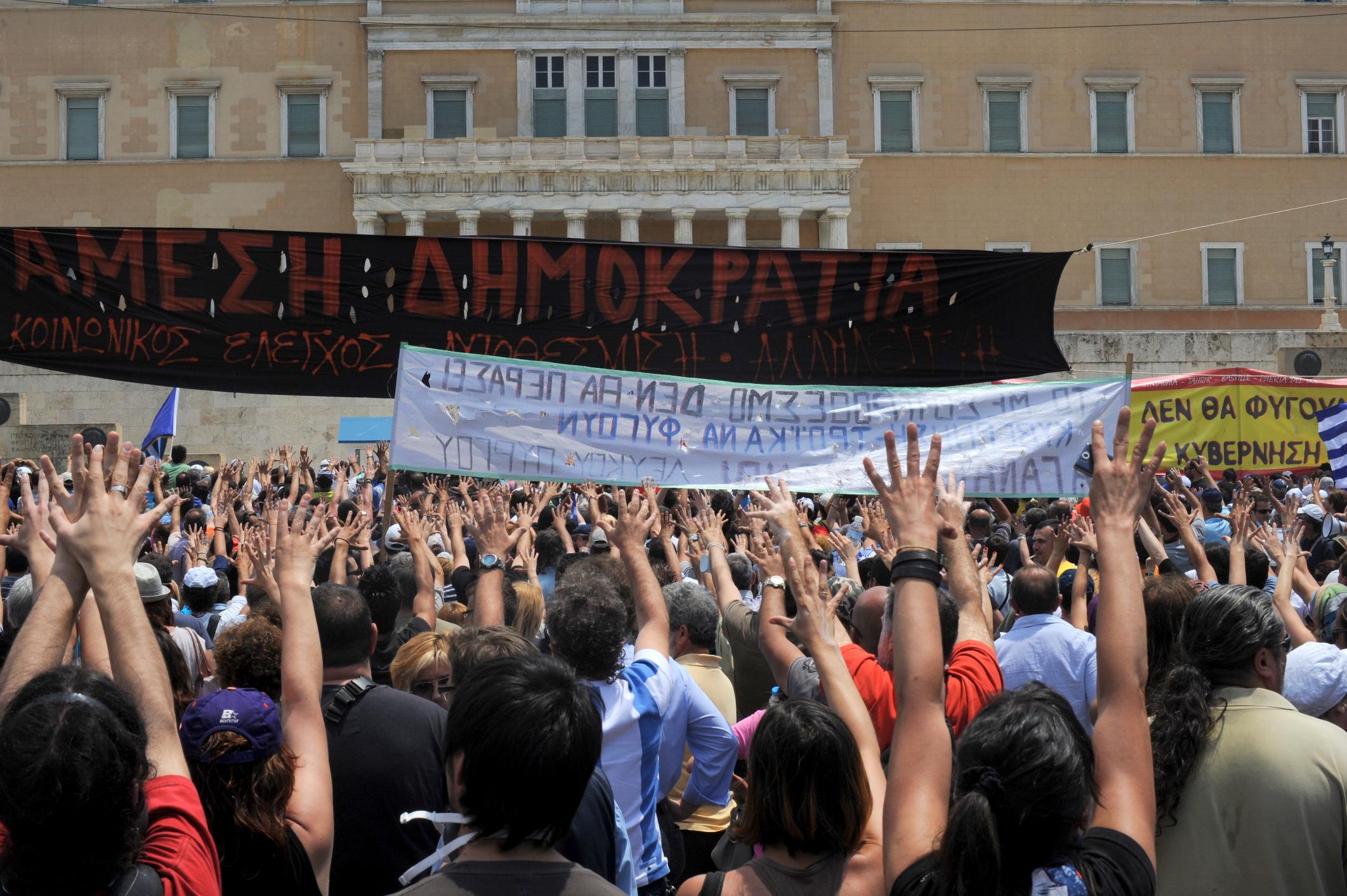Access Info Europe applies to join key case at European Court of Justice
Madrid, 6 May 2013 – Access Info Europe has applied to the European Court of Justice to intervene in a case which is of great importance to the European public in the context of the financial crisis: the case is about whether we have a right to know what key EU bodies, such as the European Central Bank, know about the financial health of Eurozone Member States.
In a letter to the Court sent on 6 May 2013, Access Info Europe asked for leave to intervene in the case of Gabi Thesing and Bloomberg Finance vs. European Central Bank. The case dates back to 2010 when a journalist working for the Bloomberg news agency asked the European Central Bank for two specific internal documents which analysed the state of Greece’s debt in 2009.
The documents allegedly contain information showing that the ECB knew Greece was hiding its debt before it all came to light when Greece took its first bailout in 2010. The question arises whether the ECB knew about this hidden debt, and if so, why were steps not taken sooner to avert the need for Greece to request a bailout.
There is broad public support for transparency of the European Central Bank: four out of five (84%) respondents in a recent opinion poll carried out by Access Info and partners in the EU Citizens project stated that it is quite or very important to make publically available full documentation from the ECB about its actions in response to the financial crisis.
The journalist from Bloomberg lost the case before the General Court of the EU in November 2012, when the court ruled that the ECB did not have to make these two documents public. Access Info Europe is arguing that there is a strong public interest in knowing what the European bankers knew and whether they acted swiftly enough in response to the situation.
In the letter, Access Info also outlined concerns around the right of access to information for citizens and civil society organisations in Member States given the court’s decision limiting transparency at the European level, as well concerns over the ability of journalists to exercise the right to freedom of expression in a democratic European society.
 Lawyer Enrique Jaramillo, who specialises in right to information litigation and is representing Access Info Europe in the case, commented “The Treaties of the European Union recognise a fundamental right of access to EU documents which is predicated on promoting good governance and participation. In the case at issue, verifying the good governance of the European Central Bank is key. The public has a right to hold accountable EU institutions whose decisions affect the economic future of the entire population in this region.”
Lawyer Enrique Jaramillo, who specialises in right to information litigation and is representing Access Info Europe in the case, commented “The Treaties of the European Union recognise a fundamental right of access to EU documents which is predicated on promoting good governance and participation. In the case at issue, verifying the good governance of the European Central Bank is key. The public has a right to hold accountable EU institutions whose decisions affect the economic future of the entire population in this region.”
Jaramillo noted that international human rights tribunals such as the European Court of Justice and the UN Human Rights Committee have linked the right of access to information to the fundamental right of freedom of expression, a right also protected in Article 11 of the Charter of Fundamental Rights of the European Union. He stated that “Journalists have a particular role to play in democratic societies when it comes to exercise of the right to freedom of expression, and a limitation of the right of journalists to information is a limitation on the right to freedom of expression and the particular public watchdog role of media. “
Helen Darbishire, Executive Director of Access Info Europe added the concern that the EU is setting standards on levels of transparency with respect to the financial crisis: “Given the close relationship between the European Central Bank and EU Member States in decision making about the financial crisis, there is a danger that access to information from Member States will be curbed lack of EU transparency. Hence the high public interest in having this case resolved in favour of openness.”
The decision of the General Court is available here.

